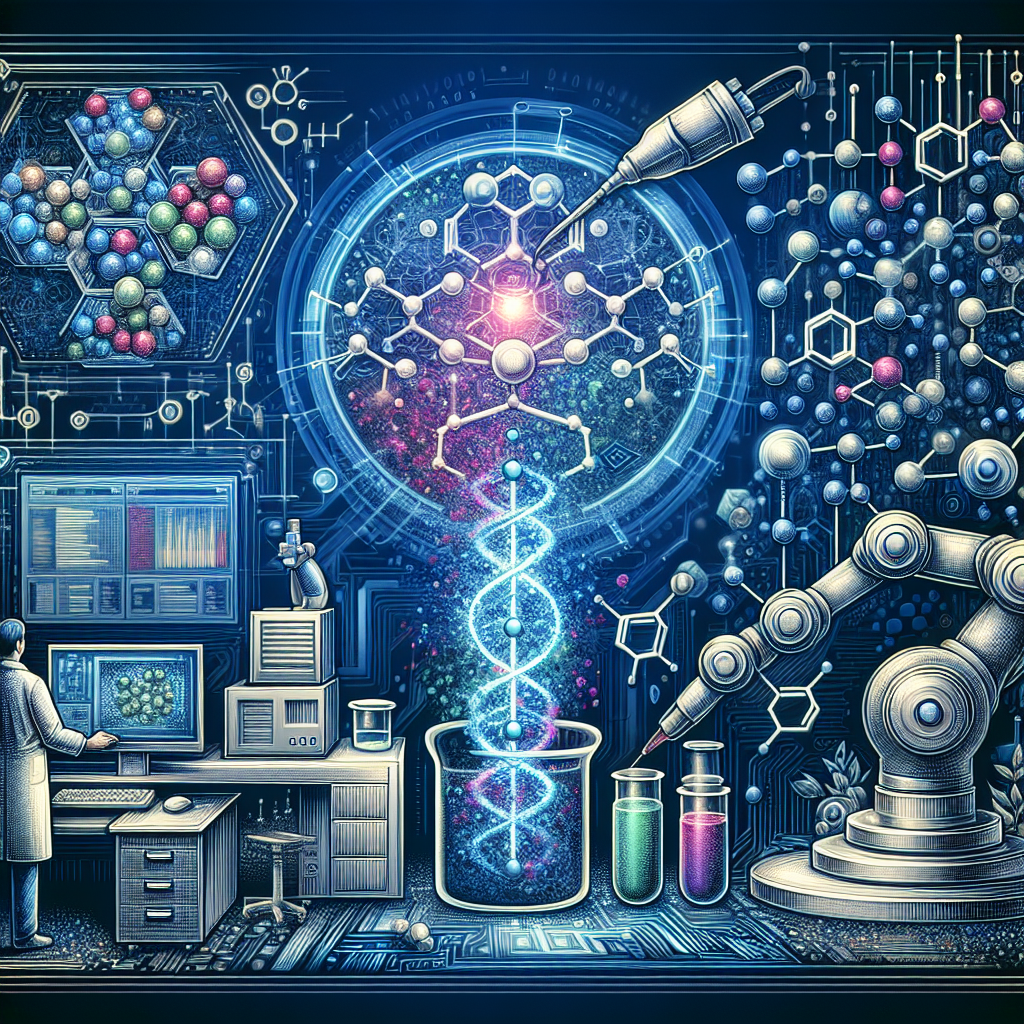In recent years, artificial intelligence (AI) has revolutionized the field of drug discovery. AI-driven solutions are transforming the way pharmaceutical companies and research institutions develop new drugs, making the process faster, more efficient, and more cost-effective. By harnessing the power of machine learning, deep learning, and other AI technologies, researchers are able to analyze vast amounts of data, identify potential drug candidates, and predict their effectiveness with unprecedented accuracy.
One of the key ways in which AI-driven solutions are improving drug discovery is by accelerating the process of identifying promising drug candidates. Traditionally, drug discovery involves screening thousands of compounds in the lab to identify potential leads, a process that can take years and cost millions of dollars. With AI, researchers can now use algorithms to analyze large datasets of chemical structures, biological activity, and clinical data to identify compounds that are most likely to be effective in treating specific diseases. This allows researchers to focus their efforts on a smaller number of promising candidates, saving time and resources.
Another way in which AI-driven solutions are transforming drug discovery is by enabling researchers to predict the safety and efficacy of potential drug candidates more accurately. By training machine learning models on large datasets of drug interactions, side effects, and patient outcomes, researchers can predict how a new drug will behave in the body and identify potential safety concerns before the drug enters clinical trials. This not only reduces the risk of unexpected side effects but also speeds up the development process by allowing researchers to prioritize the most promising drug candidates.
AI-driven solutions are also helping to overcome one of the biggest challenges in drug discovery: the high failure rate of drug candidates in clinical trials. According to some estimates, only about 1 in 10 drug candidates that enter clinical trials will ultimately be approved for use by patients. AI technologies can help researchers predict which drug candidates are most likely to succeed in clinical trials by analyzing a wide range of factors, including the drug’s chemical structure, its mechanism of action, and its interactions with biological pathways. By identifying potential roadblocks early in the development process, researchers can make more informed decisions about which drug candidates to pursue, increasing the likelihood of success in clinical trials.
In addition to improving the efficiency and success rate of drug discovery, AI-driven solutions are also enabling researchers to explore new avenues of research that were previously inaccessible. For example, researchers can use AI to analyze large datasets of genomic and proteomic data to identify new drug targets or biomarkers for specific diseases. By uncovering hidden patterns and relationships in complex biological data, AI technologies are helping researchers to gain new insights into the underlying mechanisms of disease and develop more targeted and personalized treatments for patients.
Overall, the impact of AI-driven solutions on drug discovery is profound and far-reaching. By leveraging the power of artificial intelligence, researchers are able to accelerate the development of new drugs, reduce the risk of failure in clinical trials, and uncover new opportunities for innovation in the field of medicine. As AI technologies continue to evolve and improve, the future of drug discovery looks brighter than ever.
FAQs:
Q: How does AI help in identifying potential drug candidates?
A: AI algorithms can analyze large datasets of chemical structures, biological activity, and clinical data to identify compounds that are most likely to be effective in treating specific diseases. This allows researchers to focus their efforts on a smaller number of promising candidates, saving time and resources.
Q: How does AI predict the safety and efficacy of potential drug candidates?
A: By training machine learning models on large datasets of drug interactions, side effects, and patient outcomes, researchers can predict how a new drug will behave in the body and identify potential safety concerns before the drug enters clinical trials.
Q: How does AI help in reducing the failure rate of drug candidates in clinical trials?
A: AI technologies can help researchers predict which drug candidates are most likely to succeed in clinical trials by analyzing a wide range of factors, including the drug’s chemical structure, its mechanism of action, and its interactions with biological pathways. By identifying potential roadblocks early in the development process, researchers can make more informed decisions about which drug candidates to pursue, increasing the likelihood of success in clinical trials.
Q: What are some of the new opportunities for research enabled by AI-driven solutions?
A: AI technologies are enabling researchers to explore new avenues of research by analyzing large datasets of genomic and proteomic data to identify new drug targets or biomarkers for specific diseases. By uncovering hidden patterns and relationships in complex biological data, AI technologies are helping researchers to gain new insights into the underlying mechanisms of disease and develop more targeted and personalized treatments for patients.

